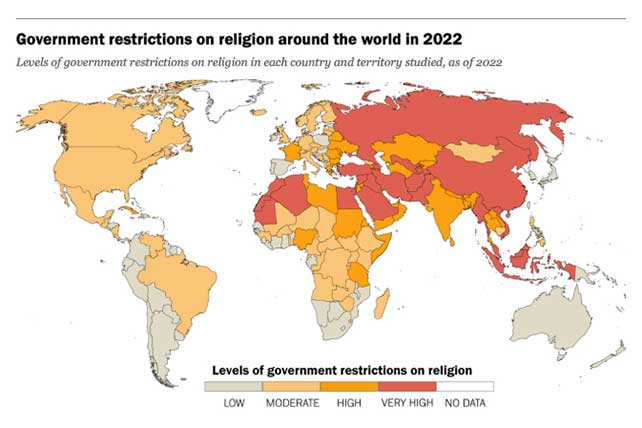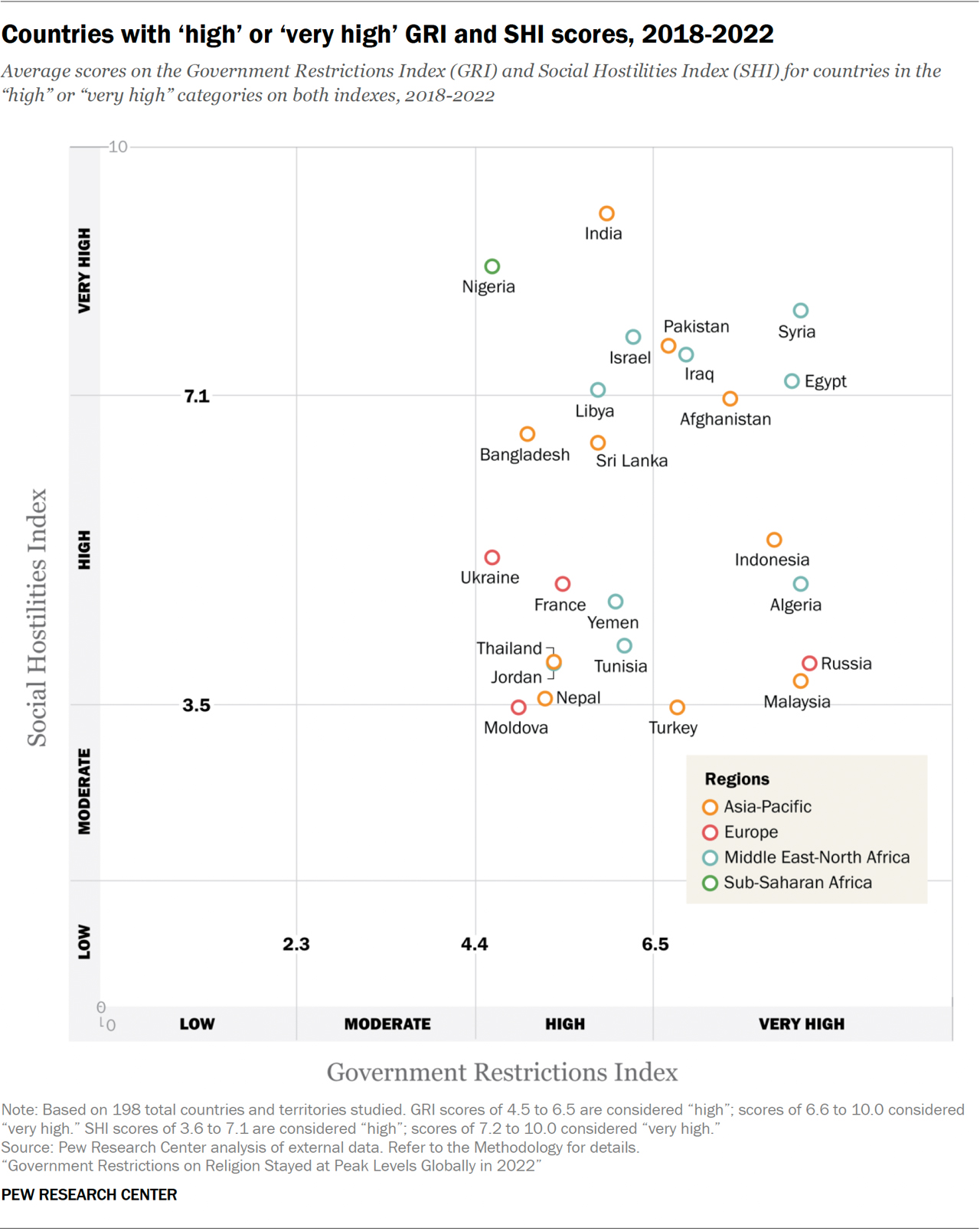(RNS) — A report by Pew Research Center on international religious freedom named Egypt, Syria, Pakistan and Iraq as the countries where both government restrictions and social hostility most limit the ability of religious minorities to practice their faith.
Governmental attacks and social hostility toward various religions usually “go hand in hand,” said the report, the 15th annual edition of a report that tracks the evolution of governments restrictions on religion.
The report uses two indexes created by the center in 2007, the Government Restrictions Index and the Social Hostilities Index, to rank countries’ levels of government restrictions on religion and attitudes of societal groups and organizations toward religion.
RELATED: Christian Persecution Higher Than Ever as Open Doors’ World Watch List Marks 30 Years
The GRI focuses on 20 criteria, including government efforts to ban a faith, limit conversions and preaching, and preferential treatment of one or many religious groups. The SHI’s 13 criteria take into account mob violence, hostilities in the name of religion and religious bias crimes.
The study looks at the situation in 198 countries in 2022, the latest year for which data are available from such agencies as the U.S. Commission on International Religious Freedom, the U.S. Department of State and the FBI. The report also contains findings from independent and nongovernmental organizations, including the American Civil Liberties Union, the Anti-Defamation League, Human Rights Watch and Amnesty International.
In total, 24 countries were given high or very high GRI scores (4.5 or higher on a scale of 10) and high or very high SHI scores (higher than 3.6 out of 10). Close behind the four countries that scored very high on both scales were India, Israel and Nigeria.
“Countries with ‘high’ or ‘very high’ GRI and SHI scores, 2018-2022” (Graphic courtesy of Pew Research Center)
Thirty-two other countries, including Turkistan, Cuba and China, scored high or very high on government restrictions, but low or moderate on social hostility. Most were rated as “undemocratic” and “authoritarian” by The Economist magazine’s Democracy Index.
“Such regimes may tightly control religion as part of broader restrictions on civil liberties,” reads the report. Many Central Asian countries and post-Soviet countries fell into that category, noted Samirah Majumdar, the report’s lead researcher.
Besides ranking countries where religions were under the most pressure, the team that put together the report, part of the Pew-Templeton Global Religious Futures Project, tried to determine “whether countries with government restrictions tend to be places where they also have social hostilities; Do countries with relatively few government restrictions also tend to be places where they have relatively few social hostilities?” explained Majumdar.
Majumdar said that the results were inconclusive. “We can’t exactly determine a causal link, but there are some patterns we were able to observe in the different groupings,” she said. “A lot of those countries have had sectarian tensions and violence reported over the years. In some cases, government actions can go hand in hand with what is happening socially in those countries.”
Countries with low or moderate scores on both indexes — a GRI no higher than 4.4 out of 10 and an SHI between 0 and 3.5 — usually had populations under 60 million inhabitants.
The index factors the same criteria over the years, and the team relies on the same sources, allowing for comparisons from one year to another. From 2021 to 2022, median GRI and SHI scores stayed the same, but in sub-Saharan Africa, the GRI rose from 2.6 to 3.0 out of 10. In Middle Eastern and North African countries, the index went from 5.9 to 6.1.


